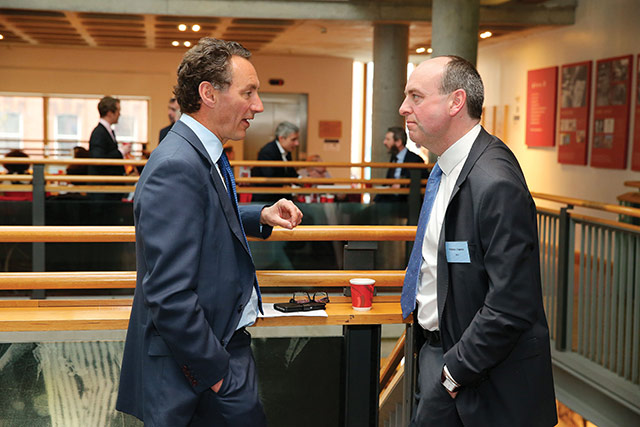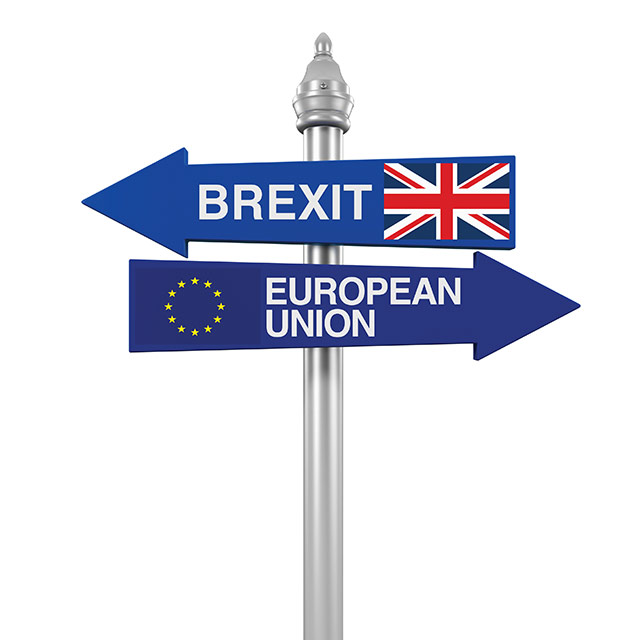Politicians must deliver Northern Ireland’s Brexit response


Industry leaders attending the recent agendaNi Brexit: Northern Ireland’s Futures conference confirmed the absolute necessity of a re-formed Stormont Executive delivering a clear, unambiguous message to both London and Brussels, in the context of the UK departing the European Union. CBI Chair for Northern Ireland David Gavaghan would not countenance any other plan of action being required.
“We have already succeeded in delivering a strong message to the key decision makers in the Brexit process,” he said. “And our voice is being listened to within Whitehall circles. We need to build on this now as a matter of priority. Local politicians must take responsibility for this moving forward. But I remain confident that an Executive will be established at Stormont over the coming weeks.”
Gavaghan said that Northern Ireland must not fall under the shadow of Scotland, as the Brexit negotiations gather pace, adding: “Scotland is now looking at what might be achieved for Northern Ireland. This could be a major constraint for local industry and political leaders over the coming months.
“The Irish Government can be a force for good when it comes to determining the fate of Northern Ireland in the final Brexit deal. Dublin can play a key part in representing the needs of Northern Ireland in the upcoming negotiations. There is also a tremendous amount of good will within the other EU member states when it comes to getting a deal that works for Northern Ireland.”
Gavaghan also pointed to the growing significance of Ireland’s all-island economy: “This has helped deliver peace and prosperity. Its further development must not be jeopardised by the Brexit process. Peace in Ireland is a fundamental priority for Europe and there is huge potential to be realised from both parts of this island working together.
“The level of corporation tax levied in Northern Ireland will also be a key driver for the local economy, once Brexit kicks in. This is an important factor when it comes to encouraging inward investment. The reality is that corporation tax matters globally.”
There was a general acceptance amongst those taking part in the open forum discussion that Northern Ireland’s political and industry leaders must deliver its priority requirements pertaining to Brexit to both London and Brussels over the coming weeks. But there was no consensus on how this could be achieved if the Stormont Executive remains in limbo.
Gavaghan argued that local politicians are showing an active interest in Brexit, despite the breakdown in the Stormont talks’ process. All agreed that a return to direct rule would be an extremely retrograde step, where Brexit is concerned.

Irish Congress of Trades Unions (ICTU) assistant General Secretary Owen Reidy suggested that Dublin could assume a proxy negotiating role on behalf of Northern Ireland. However, Northern Ireland Food and Drink Association (NIFDA) Vice Chairman Brian Irwin said there were limitations to this approach.
“Northern Ireland must have its own clear Brexit strategy put in place with Dublin and London brought on board in equal measure.”
NIFDA chairman Declan Billington said that talks are ongoing between his organisation and the Ulster Farmers’ Union to agree an overarching Brexit strategy for agriculture and food.
“These discussions will be finalised over the coming weeks. They will take account of cross-border issues, trading relationships between Northern Ireland and the rest of Europe plus the support arrangements that will be available to farming in Northern Ireland, once Whitehall takes over the purse strings in 2020.
“We need a joined up approach coming out of London where farming and food are concerned. Communicating this reality will be a priority for both industries over the coming weeks and months.”
Professor David Phinnemore, from Queen’s University Belfast, said that higher education is already playing an active role in the Brexit debate. These developments reflected the high level of EU funding currently available to universities and other research establishments in Northern Ireland. He also pointed to the UK’s insistence of seeking a bespoke deal with the EU-27 as a serious time constraint when it comes to sorting out trade matters down the line.
The Economic and Social Research Institute’s (ESRI) Martina Lawless said that political leaders in many eastern European countries are deeply resentful of the UK’s decision to leave the EU and the impact this will have on their own nationals currently working in Britain.
“This factor could have a major bearing on the final outcome of the negotiations. But, irrespective of this, Northern Ireland has no option but to develop concise Brexit priorities and communicate these effectively to all relevant decision makers.”
Where trade is concerned, Phinnemore stressed that the UK has the option of cherry picking deals that have already been agreed by the EU with a range of countries around the world, rather than going down the road of a bespoke negotiating process.
“The UK’s position on this issue may change as the discussions progress. It is highly unlikely that the United Kingdom and the EU-27 will have time to reach agreement on a binding trade deal during the Brexit process, irrespective of the route the formal negotiations follow up to the end of March 2019.
“This leaves the door open on some form of transitional arrangements, involving the WTO, being put in place.”
Lawless agreed: “The recent trade deal reached between the EU and Canada is a case in point. This took seven years to complete. But the one factor that could shorten the Brexit timeline is the fact that the UK already complies with all of the trading standards required by the EU.”
Reidy pointed out that trade deals are all about reaching agreement on standards. He also expressed concern as to who will pay the ultimate price for the UK leaving the EU and the setting up of future trade deals between London and other countries around the world.
“My deep fear is that workers will be the people left paying these bills and this will manifest itself in lower wages and poorer working conditions. This must not be allowed to happen under any circumstances. Workers will not take this on the chin and all trade unions will react accordingly.”
There was a general consensus to the effect that Northern Ireland’s manufacturing sector will be particularly impacted by Brexit. Costs may well go up, as will the general level of complexity when it comes to trading with Europe post-Brexit.
Lawless pointed to the need for businesses to be fully prepared for the additional administrative costs that will accompany Brexit. Reidy agreed: “Irrespective of a hard or soft Brexit deal being arrived at, the levels of bureaucracy facing all exporting businesses beyond 2019 will increase. It’s up to government to ensure that these companies are supported in a meaningful way.
Brian Irwin said that the food sector must have continuing access to a migrant labour pool, irrespective of whatever final Brexit deal is arrived at. “Northern Ireland’s entire food processing sector is almost totally reliant on a migrant labour force, both full time and seasonal,” he said.
“If this labour pool becomes unavailable, in the wake of a Brexit deal, then all of these businesses will move their operations to locations outside Northern Ireland, where they can get the workers they want. Developments of this nature would have a catastrophic impact on the local economy as a whole.”





